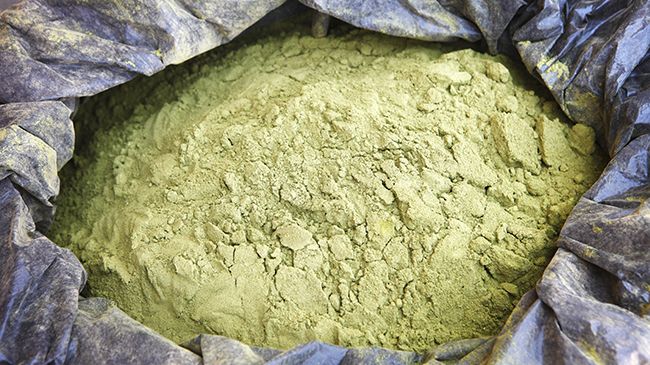Our remarkable planet is rich with natural plants, herbs, water, and even slime that aid in healthy, gorgeous tresses that thrive and remain frizz-free. For over 5,000 years Ayurveda has been India prized in India for health benefits. Ninety percent of the continent’s population uses some form of Ayurveda therapy that is entirely holistic and strives to keep harmony between the mind, body, and spirit while preventing illnesses. Yes, this is the perfect approach for healthy hair and body.
Amla powder
An Indian gooseberry, amla is the fruit with greenish yellow berries and a fibrous inner texture that grows on the myrobalan-tre, which is native to India and Burma. Phyllanthus emblica is its botanical name and it is harvested by hand in autumn. This fruit with a sour, bitter, and astringent taste has a high vitamin C content, which is excellent for boosting the immune system and the powder is often added to the roots of hair to add strength and shine.
Bhringaraj powder
Also known as Eclipta alba, this herb is an annual, creeping and moisture-loving herb. Bhringarj is the main herb for hair care in Ayurveda. It stops premature graying by retaining the hair’s natural color. Its anti-inflammatory properties function as a scalp exfoliator to rid infections and reduce dandruff. It is most prized for combatting hair loss induced by medical condition and stress.
Brahmi powder
This creeping perennial is native to many parts of the world and most frequently found in tropical regions of the Asian continent. Bacopa monnieri is its botanical name and it is well-known as a hair thickener and possessing rejuvenating properties. Best used in combinations with other popular Ayurvedic powders like amla, bhringarj, shikakai, and neem to aid in strengthening hair’s roots.
Henna
This natural plant used for staining the skin (for decorations”> and coloring hair is made from the powdered leaves of a desert shrub plant lawsonia. The leaves of the henna plant contain lawsone and this orange/red dye is released as the leaves are crushed. This shrub grows in the tropical and subtropical regions of the world like Africa, Northern Australia, and Southern Asia and the purest quality henna is grown and harvested in Northwestern India. Henna does more for hair than coloring, as it stops hair breakage, seals in moisture, and repairs the hair’s cuticle and has some conditioning properties.
Hibiscus petal powder
Also known as Jaswand or Jaswandi, this plant grows mostly in tropical regions of the world. Its botanical name is Hibiscus sabdariffa and can be found as the main ingredient in many refreshing teas made around the world. Hibiscus petal powder enhances the red tones in hair when used with henna to achieve cherry color in hair. Great as a gentle cleanser (perfect for a scalp scrub”> and a conditioning herb that helps decrease hair shedding by strengthening and condition the roots. Gain volume and shine with this hair loving herb.
Marshmallow root powder
From the Malvaceae plant family, this perennial herb is native to damp areas of northern Europe and Western Asia. Its botanical name is Althaea officinalis and has been most commonly used to ease sore throats and dry coughs. It is a valuable ingredient in hair products, as it will aid in treating eczema, psoriasis, and a dry scalp. It is also beloved in the curly hair community as the gel-like substance is superior for detangling.
Neem leaf powder
All parts of the neem tree are used in traditional medicine. Azadirachta indica is its botanical name and the tree is native to India. This natural herb is powerfully effective on fighting diseases with its antibacterial, antifungal, and antiviral properties. It helps to treat scalp ailments, promote healthy hair growth, and is believed to aid in relieving hair loss that occurs from excess sebum that clogs the pores of the scalp or by psoriasis and eczema. Neem leaf powder can treat those conditions and cleanse the scalp for healthy hair growth.
Shikakai powder
Translating to “hair-fruit” or “fruit for hair”, this shrub-like tree grows in central India. It is high in vitamins A, C, D, E, and K along with antioxidants. It has been used for centuries as a cleanser for body and hair because of its cleansing properties. A reliever of dandruff, it also has detangling properties and will promote hair strengthening and conditioning.
Most of these powders can be made into a paste with distilled water and used either alone or with other powders and oils for outstanding hair masks, cleansers, conditioners, and gels. All of these natural powders will bring wonderful benefits to your hair so which is your favorite or which one are you ready to try?

